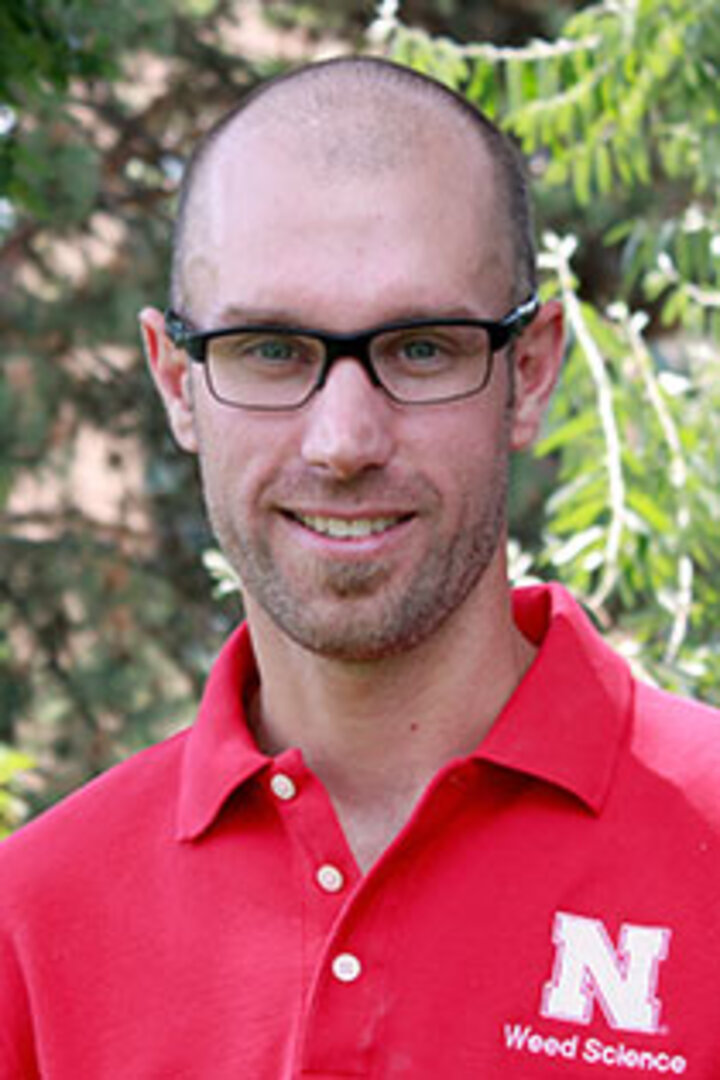The challenges of studying integrated crop production systems sparked an interest in Chris Proctor that led him to expand his career focus in weed science from turf to global agriculture and food production.

Weed Science Extension Educator
The new Weed Science Extension Educator in the Department of Agronomy and Horticulture, Proctor has a 100% extension appointment to develop and deliver UNL research-based weed science information to growers and the ag industry. He will be focusing on resistance management and integrated weed management and coordinating the Nebraska Extension Crop Production Clinics. Proctor also will be a CropWatch contributor.
Proctor received B.S. and M.S. degrees from Washington State University where he studied crop science. In 2013 he completed his PhD in agronomy at UNL, then continued as a post-doctoral researcher with a focus on teaching, molecular physiology, and cover crops. In September 2013 he was on a team of UNL graduate students who traveled to Germany to pitch an idea aimed at addressing global food security. The UNL team brought together students from various backgrounds, including computer engineering, agriculture, chemistry, and chemical engineering, in a multi-disciplinary team to find solutions with real-world applications. More recently he helped advise UNL students that received an international award for their Farm Profit Calculator app, a tool to give farmers insights into how to maximize their profits. The contest was sponsored by Microsoft and the US Department of Agriculture.
As a weed science educator, Proctor said he hopes to approach weed management with a similar multi-disciplinary systems-based approach.
“The systems-based approach to solving problems is really interesting to me,” he said, “like multiple pieces of a puzzle, we look at how practices and technologies can work together most effectively. For example, determining how crop rotations, equipment technologies, new traits and new herbicides, and cover crops can effectively work together is exciting.”
“An integrated approach requires a longer term view. The payouts aren’t always immediate.”
Farmers with resistant weeds understand the long-term importance of managing resistance. The goal is to help those without weed resistance see the benefit of resistance management before it becomes an issue. Proctor said farmers are some of the most innovative people he’s met and is looking forward to learning from Nebraska farmers about practices and systems that work in their operations. In learning about why something works in one location, further studies could help identify where it might have wider application, he said.
Proctor, who loves rural life and being in the outdoors, grew up in Washington State where his grandfather and uncle raised cattle.
